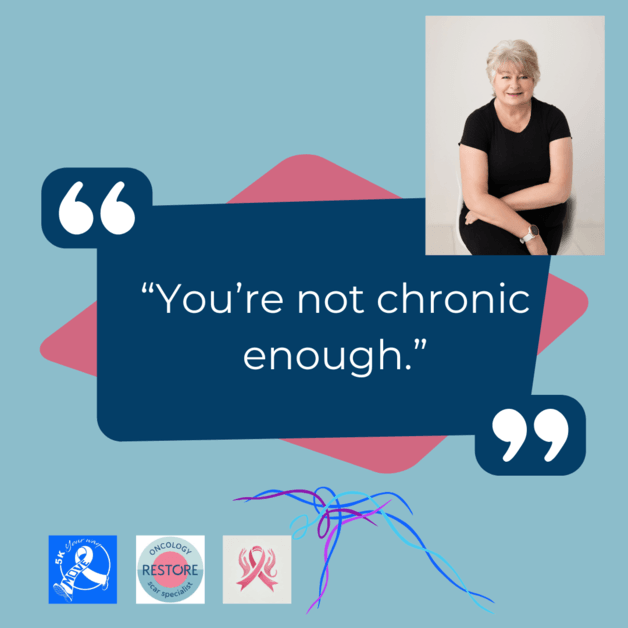
When “You’re Not Chronic Enough” Isn’t the End: 6 Powerful Questions to Ask Your Healthcare Provider
If you have ever been told by a healthcare professional that you do not qualify for treatment because your condition “isn’t bad enough yet,” or that’s normal, it can feel like the door has been slammed shut.
But here’s what those phrases often mean:
“Our free publicly funded resources are stretched, so we can only offer them to people in the most severe situatiuons”.
That does not mean you should just put up with your symptoms or wait for them to get worse. In fact, the earlier your get support, the more likely you are to avoid long-term problems.
Here are six questions you can take into your next appointment– (hopefully, as we know I like research and jargon) with plain and easy to understand explanations so you feel confident using them.
1) “Can we explore early intervention or look at the next level of care options?”
Plain meaning: Instead of waiting until things are severe, ask if there is a smaller, earlier step you can take now– It might be a lighter version of a treatment, being referred to another department, a different approach to help the condition or advice about being proactive and exploring help privately.
Why it works: Many health conditions respond better when caught early, and there are often services tucked away in the system or services not connected to the system that can be explored with a little guidance.
2) “What specific criteria or assessment tools are being used here?”
Plain meaning: Ask how they have decided you do not qualify– is it a questionnaire score, a pain scale, or a certain medical measure?
Why it works: Understanding their “measuring stick” takes the mystery out of their decision and can help you track for future appointments.
3) “Are there lower-cost, or sliding-scale services in this network or nearby, or services outside this network I can explore?”
Plain meaning: If you can’t access the free option, is there a paid option, and anything that charges less if your budget is tight?
Why it works: Not all services are advertised, and asking directly can uncover more choices to explore.
4) “Can we revisit this in 4-6 weeks with a shared plan of next steps?”
Plain Meaning: You are not acdepting “no” as the final word– You are asking for a follow-up so you can check in on your progress and re-apply for support if needed.
Why it works: It keeps you in the system and gives you a date to work towards, rather than being left in limbo.
5) “What self-help or peer-support tools do you recommend while we wait for the next available treatment?”
Plain meaning: If treatment is not available yet, what can you do in the meantime to help yourself– and importantly who can you connect?
Why it works: This shifts the conversation from “come back when it gets worse” to “here’s something you can start doing now”, which will boost your confidence and give you some control. You might be able to stabilise your condition while the system catches up.
6) “Is there an internal interview or appeal process if I still feel I need care?”
Plain meaning: If you disagree with their decision, is there a way to have another person or panel look at your case?
Why it works: Knowing your right to appeal means you do not have to accept the first “no”. Sometimes, a different reviewer will see your case differently. Knowing your rights and next steps moves you from passive patient to informed advocate.
Research and Rationale
I often refer clients to other practitioners and/or the NHS. Very often they come back with the two phrases at the top with no other guidance.
• Early intervention wins: Several studies show that stepping in early- even with minimal symptoms– can prevent excalation or chronic progression
• Assessment transparency matters: When your healthcare professional shares their scring system, it reframes the conversation from subjective to clear.
• Sliding-scale and private networks exist: There are clinicians and community services out there, you just need some help in finding them.
• Peer support counts: Online or in-person peer support groups provide not only emotional support and practical tips– they are a hub of information about services local to you.
To Sum Up
If you have been told your condition isn’t “serious enough”, remember: that it is often about systems and funding, not about your worthiness or your right to feel better. Above all, your feelings and experiences matter– think of it as an invitation to ask better questions, know your options and be proactive in your wellbing. Help can and should come earlier than “extreme crisis”.

It’s often knowing the right questions to ask and having the confidence to ask them. For too long we have been conditioned to accept what we are told .
Hi Marilyn. I hope this blog has given some guidance to help you with information and questions